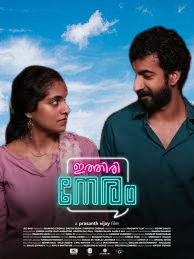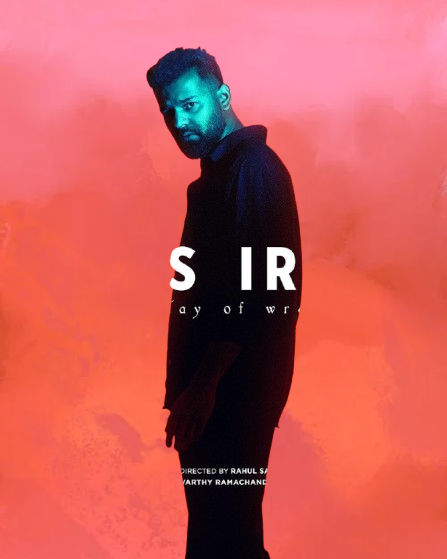Ithiri Neram Movie 2025 Movierulz Review Details

Ithiri Neram (2025) Review: Director’s Vision and Quiet Mastery
🎬 Book Movie Tickets Online
Check showtimes, seat availability, and exclusive offers for the latest movies near you.
Check on BookMyShow →You know that rare film that feels like a conversation you wish would never end? Ithiri Neram is exactly that — a restrained, present-tense study of two people and the choices that shaped them. As a reviewer with 15 years covering Indian cinema, I watched this one with a notebook and a soft smile. This is my take on Prasanth Vijay’s directorial choices and how they shape the film’s emotional logic.
Overview: director, tone, and intent
Director: Prasanth Vijay. Writer: Vishak Shakti. The film keeps its nose in the present and refuses the easy fallback of flashbacks. That choice is bold — it forces the viewer to live in the characters’ awkward silences.
Insight: The film’s refusal to dramatize the past makes the present feel heavier and more honest.
Takeaway: Prasanth Vijay trusts conversations to carry narrative weight; patience rewards the attentive viewer.
Directorial signature — what Vijay opts for
- Economy of movement: long takes, minimal cutting.
- Present-tense storytelling: no flashbacks, everything is uncovered through interaction.
- Actors-first approach: space for micro-expressions and unsaid emotions.
- Subtle city texture: the traditional city backdrop is a quiet character.
Echoing my coverage of conversational Malayalam dramas, Vijay’s style here is low on spectacle and high on human scale. This feels like a director who’s more interested in emotional truth than plot mechanics.
Star Rating
| Metric | Score |
|---|---|
| Overall Film | 4 / 5 |
| Director’s Vision | 4.5 / 5 |
| Performances | 4.5 / 5 |
Note: This rating’s personal—could change on director’s cut.
Directorial Choices — close reading
Vijay makes several deliberate choices that define the film’s effect. The camera mostly observes; it rarely judges. Scenes breathe. Lines land without force. That restraint can feel slow to some, but it is intentionally so.
| Choice | Effect |
|---|---|
| Single-location emphasis (party & nearby streets) | Intimacy; social pressure palpable |
| No flashbacks | Memory shown through dialogue, not cinematic tricks |
| Focus on pauses | Emotional subtext becomes louder |
Insight: Minimalist direction magnifies the actors’ small gestures.
Takeaway: If you value character study over plot, this is rich terrain.
Main Performances — how Vijay directed his leads
Roshan Mathew (Anish Thomas) underplays beautifully — a man carrying charm and regret. Zarin Shihab (Anjana S Kumar) matches him with quiet steel and vulnerable cracks.
| Actor | Role | Notes |
|---|---|---|
| Roshan Mathew | Anish Thomas | Nuanced, restrained; anchor of the film |
| Zarin Shihab | Anjana S Kumar | Strong interior life, subtle power shifts |
| Nandhu | Rajan Kunnukuzhi | Local flavor; steadies group dynamic |
| Anand Manmadhan | Chanchal Kachani | Wry, skeptical foil |
| Jeo Baby | Sanal | Light comic relief; human texture |
Vijay’s direction lets these actors find very specific rhythms. Scenes feel lived-in rather than performed.
Insight: Directing for silence is hard; Vijay succeeds by trusting actors.
Takeaway: Performance-first filmmaking pays off here.
Screenplay & pacing — Vishak Shakti’s contribution
The screenplay resists melodrama and cheats; it gives characters agency through dialogue. Pacing is slow but deliberate; each scene serves character revelation rather than plot mechanics.
| Film | Similarity | Difference |
|---|---|---|
| Quiet conversational dramas | Shared focus on dialogue | Ithiri Neram is more present-tense, fewer narrative devices |
| Traditional Malayalam romance | Emotional depth | Less melodrama, more restraint |
There’s a clear lineage to recent Malayalam films that prize realism, but Vijay’s commitment to the “present only” rule gives Ithiri Neram its own identity.
Cinematography & music — serving the vision
Rakesh Dharan’s camera is intimate; Basil CJ’s score is used sparingly but effectively. Both departments echo the director’s restraint rather than upstaging the performances.
Insight: Subtle cinematography plus sparse music keeps the emotional focus tight.
Takeaway: Technical choices consistently back the director’s human-scale storytelling.
Where the film excels — and where it might test you
- Excels: Naturalistic dialogue, layered performances, consistent tone.
- Tests: Slow pace, limited plot movement may frustrate viewers who prefer clear narrative payoffs.
- Best for: Viewers who enjoy character-driven films and nuanced romances.
As someone who’s covered films by directors who prize mood over movement, I think Vijay’s choices are confident and coherent. The film isn’t for everyone — and that’s a strength, not a bug.
Final verdict
Ithiri Neram is a mature film shaped by a director who trusts conversation and quiet. Prasanth Vijay’s vision is clear: let people speak, pause, and reveal. The result is a small film with big emotional aftershocks.
Overall: 4 / 5 — a director-led film that rewards patient viewers.
Credits & Key Details
| Field | Detail |
|---|---|
| Director | Prasanth Vijay |
| Writer | Vishak Shakti |
| Lead Cast | Roshan Mathew, Zarin Shihab |
| Music | Basil CJ |
| Cinematography | Rakesh Dharan |
| Runtime | 2h 17m |
| Release Date | November 7, 2025 |
FAQs
Q1: Is Ithiri Neram suitable for viewers who dislike slow films?
A1: It asks for patience. If you dislike slow pacing, this may feel long. But the payoff is emotional specificity.
Q2: How much does direction shape the performances?
A2: Hugely. Vijay’s minimal approach gives actors room to breathe; performances and direction are tightly linked.
Q3: Should I watch it for music or visuals?
A3: Watch it for performances and the writing. Music and visuals support the mood; they don’t dominate.
Having covered hundreds of films over 15 years, I can say Ithiri Neram is a confident directorial statement — intimate, controlled, and emotionally honest.










